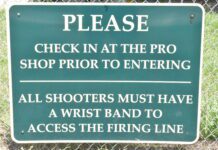Columnist Walter Williams, professor of economics at George Mason University, recently wrote in the Philadelphia Inquirer:
Every time there’s a highly publicized shooting, out go the cries for stricter gun-control laws, and it was no different with the recent slaying of Philadelphia Police Sgt. Stephen Liczbinski.
Pennsylvania Gov. Ed Rendell and Philadelphia Mayor Michael Nutter, in a letter to the state congressional delegation demanding re-enactment of the federal assault-weapon ban, said, “Passing this legislation will go a long way to protecting those who put their lives on the line every day for us. … There is no excuse to do otherwise.”
A few days after the slaying of Liczbinski, Gov. Rendell told a news conference, attended by state elected officials and top law-enforcement officials, “The time has come for politicians to decide. You have to decide whether you’re on their side — the men and women who wear blue — or whether you’re on the side of the gun lobby.”
Instead of saying “whether you’re on the side of the gun lobby,” Rendell should have said, ‘whether you’re on the side of the criminal and the courts, prosecutors, prisons and parole boards that cut soft deals with criminals and release them to prey upon police officers and law-abiding citizens.’
If there is one clear basic function of government, it’s to protect citizens from criminals. When government failure becomes so apparent, as it is in the slaying of a police officer, officials seek scapegoats, and very often it’s the National Rifle Association and others who seek to protect our Second Amendment right to keep and bear arms. We hear calls for stricter gun-control laws when what is really needed is more control over criminals.
There are many third-party liability laws. I think they ought to be applied to members of parole boards who release criminals who turn around and commit violent crimes. As it stands now, people on parole boards who release criminals bear no cost of their decisions.…”




























